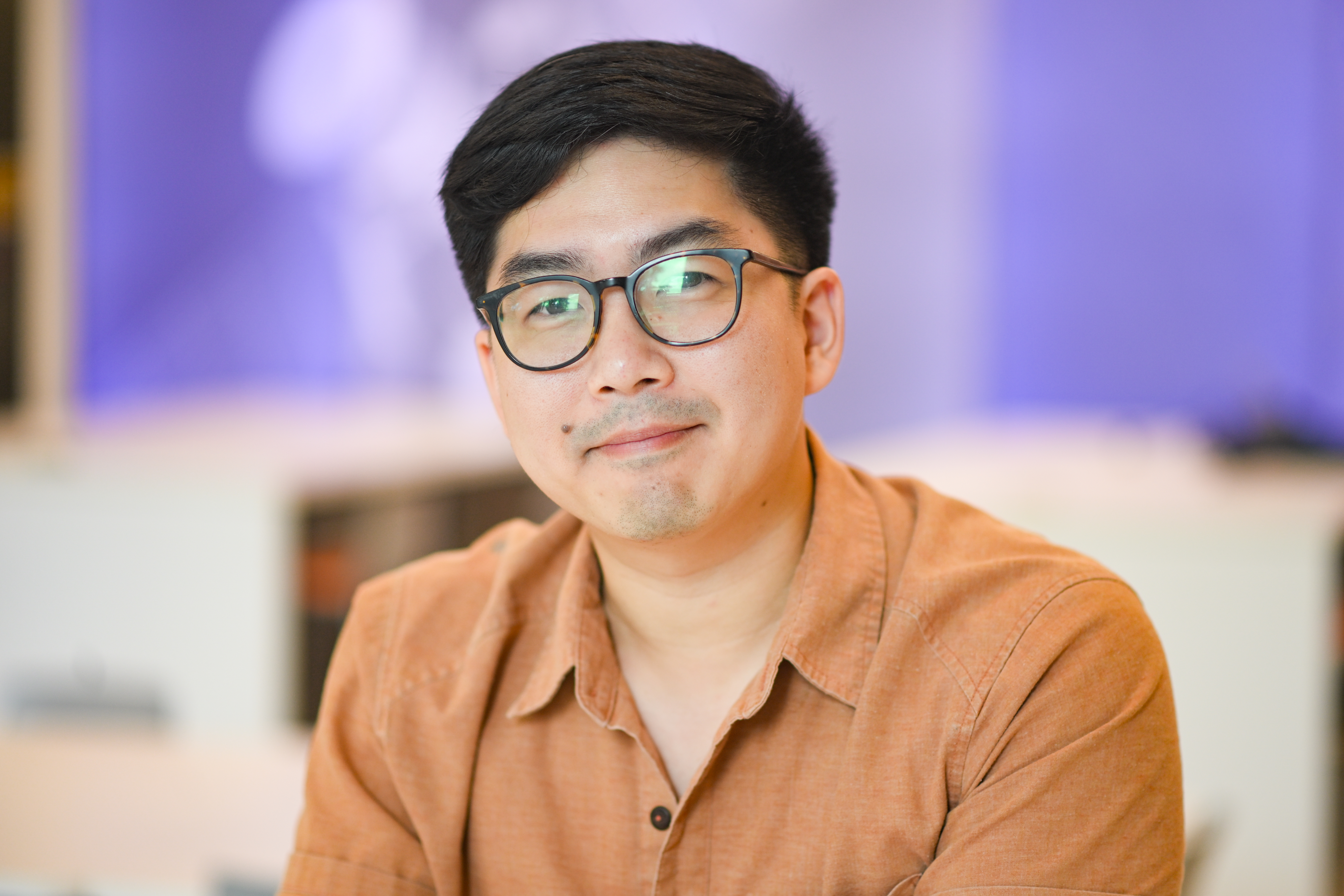The Oden Institute for Computational Engineering and Sciences is excited to announce the appointment of Jesse Chan as a tenured associate professor, beginning Fall 2025. Chan will hold a joint position between the Oden Institute and the Department of Aerospace Engineering and Engineering Mechanics at the Cockrell School of Engineering. He joins UT Austin from Rice University, where he previously held the position of associate professor in the Department of Computational Applied Mathematics and Operations Research (formerly the Department of Computational and Applied Mathematics).
A leader in the field of computational mathematics, Chan has authored over 45 journal articles, and his work has been consistently supported by the National Science Foundation (NSF), including recognition through an NSF Early Career Award. He is a principal developer of Trixi.jl, a widely used Julia package for solving nonlinear hyperbolic partial differential equations (PDEs). The software ranks among the top 100 most used Julia-based open-source projects on GitHub.
“We look forward to welcoming Dr. Chan in this new joint faculty position. His background will strengthen our department’s reputation in computational engineering and science and collaboration across disciplines,” said Clint Dawson, Principal Faculty at the Oden Institute and Department Chair at Aerospace Engineering and Engineering Mechanics. “Dr. Chan joins us at an exciting time of growth, and we look forward to his contributions.”
Tell us about your research and why it is impactful
The main goal of my research is to design the next-generation numerical methods for physics-based simulations. In particular my research has focused on "entropy stable" finite element and discontinuous Galerkin methods for the partial differential equations governing aerodynamic and complex fluid flows. These methods address persistent issues of robustness and reliability that advanced and highly accurate discretizations (such as high order methods or reduced order models) face when applied to more challenging computational fluid dynamics (CFD) settings.
What are some potential real-world applications of your work?
I work on simulations of high-speed fluid flows over complex geometries. These simulations are used in the evaluation and optimization of aerodynamic designs, such as aircraft and wind turbines. Similar computational models are used within weather and flood prediction models, as well as in the modeling and design of plasma and fusion.
What ties all of these application areas together is that their state-of-the-art computational models face issues of robustness and reliability: they can produce nonphysical results or crash unexpectedly. These issues of robustness and reliability are related to shock waves and turbulence in high-speed fluid flows, which are computationally intractable to fully resolve.
This under-resolution can cause inconsistencies with the second law of thermodynamics; my work identifies ways this can occur in order to design more robust “entropy stable” simulations. Our group focuses on a range of different simulations, from next-generation high fidelity models to inexpensive “surrogate” reduced order models.
What do you enjoy most about your research?
What got me into research was the feeling of discovery when you make a breakthrough and different pieces of the puzzle start to come together. However, the more time I’ve spent as a researcher, the more I appreciate the human side of research - the communities, collaborations, relationships, and mentorships that form naturally among computational scientists, engineers, and mathematicians working on similar areas.
What drew you to join the faculty at the Oden Institute?
I am very excited to join the Oden Institute and UT! In addition to joining a top institution for the computational sciences, I am excited about interacting with the remarkable combination of mathematical expertise and engineering experience. Finally, many faculty at the Oden Institute have been inspirations to me over the years, not only for their research, but for the example they set as mentors and as leaders in their communities.
Chan is an alumnus of the Computational Science, Engineering, and Mathematics (CSEM) program at the Oden Institute where he earned his Ph.D. in 2013. He completed his postdoctoral training at both Rice University and Virginia Tech.
